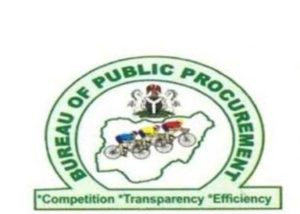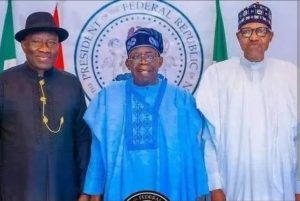
Nigeria will work closely withinternational development partners to accelerate the pace of socio-economic and sustainable growth, particularly in those areas that will lead to the speedy realization of the objectives of Nigeria’s Economic Recovery and Growth Plan (ERGP).
Minister of Budget and National Planning, Senator Udoma Udo Udoma, made this known in Abuja while meeting respectively with the Ambassador Designate of Japan, His Excellency, Yukata Kikuta, and the United Nations Industrial Development Organization (UNIDO) Managing Director (Programme Development and Technical Cooperation Division), Mr Phillippe Scholtes.
At each of the meetings, the Minister told his guests that Nigeria is disposed to working with local and foreign development partners to achieve the change agenda of the Buhari Administration.
He acknowledged the cordial and beneficial working relationship existing between Nigeria and both Japan and UNIDO over the years, and emphasized that there were opportunities for further enhancing the relationship given the policy initiatives and disposition of the Buhari Administration.
They were briefed by the Minister on Nigeria’s Economic Recovery and Growth Plan which the Minister said was developed by the Nigerian Government in response to the economic challenges the Buhari Administration inherited at inception. They were also briefed on the many policy initiatives of the Federal Government.
The Minister explained the concept of the ERGP: “The plan was developed after extensive consultations and has been generally accepted and commended by Nigerians. It has three key objectives: Restoring growth from a negative trend in 2016 to 7% by 2020; Investing in our people by increasing social inclusion, creating jobs and improving the human capital base of the economy; and building a globally competitive economy”.
Specifically, he indicated that Nigerians were impressed by the transformation of the Japanese economy over the last 50 years and noted that this was achieved by the strong partnership existing between the Japanese Government and the Japanese private sector. He said that the Nigerian Government was also working on strengthening its own partnership with the private sector because of the recognition that increased private sector investment is critical to achieving the development targets set out in the ERGP.
While meeting with the UNIDO Chief, the Minister observed that UNIDO programmes are in alignment with the objectives of the ERGP, which he explained was developed to address Nigeria’s socio-economic challenges and lay the foundation for economic diversification, inclusive and sustainable growth.
While the Ambassador pledged his readiness to enhance the existing cordial working relationship with the Government of Nigeria and assured of his home country’s willingness to play a helpful role in the growth of Nigeria’s economy; the UNIDO MD assured that his organization will continue to support the Federal Government of Nigeria by working closely with the Ministry of Budget and National Planning, and other relevant government agencies, to promote the new Country Programme for Sustainable and Industrial Development in Nigeria (2018-2022).
The Managing Director congratulated the Minister on Nigeria’s successful exit from economic recession through the strategic approach adopted by the Federal Government through the instrumentality of the ERGP.
Mr. Scholtes told the Minister that the validation of UNIDO’s new Country Programme for Sustainable and Industrial Development in Nigeria (2018-2022), which was done in consultation with the Ministry of Budget & National Planning, was developed in full alignment with relevant national, regional and global strategies, including ERGP, IDDA II and 2030 Agenda.
He assured that UNIDO will continue to support the Federal Government of Nigeria by working closely with the Ministry of Budget and National Planning to promote and accelerate ISID and Implementation of IDDA II for the 2030 Agenda especially SDG goal 9.
He also commended Nigeria for early commencement of implementation of the new Country Programme; and taking ownership and showing strong commitment, particularly in such areas as payment of counterpart contributions, host country agreement commitment and assessed contribution to UNIDO.




频道是 Telegram下载 的广播工具,管理员可以向大量订阅者发送消息。